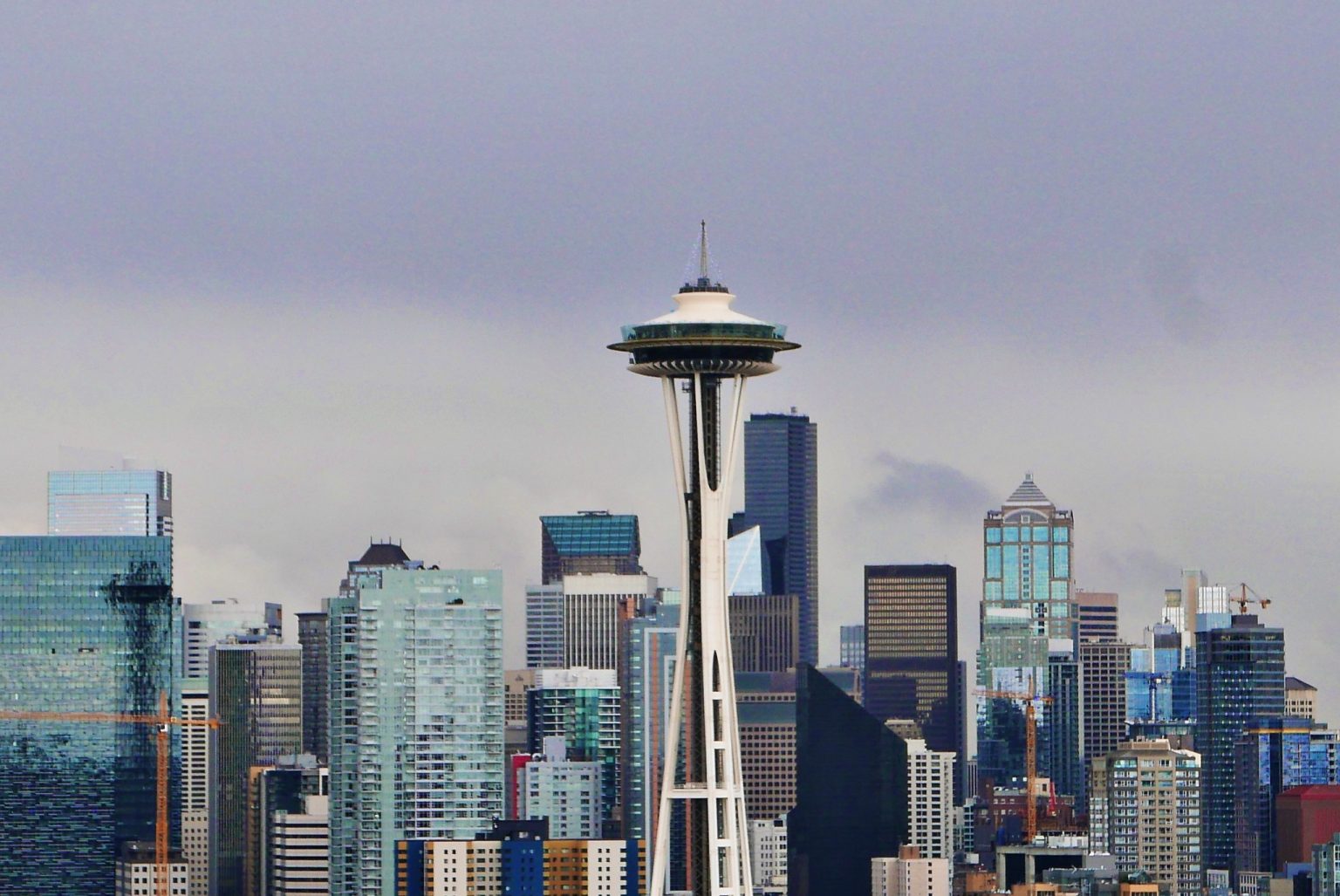Summarize this content to 2000 words in 6 paragraphs
Most AI activity is clustered around the Seattle metro area, leaving other parts of Washington underrepresented and less developed in AI initiatives, according to WTIA’s new report. (GeekWire File Photo / Kurt Schlosser)
A new report from Washington Technology Industry Association (WTIA) offers a deep dive on the state’s artificial intelligence ecosystems, highlighting how Washington stacks up against the rest of the country and illustrating the state’s strengths and areas for improvement.
“The Washington State Artificial Intelligence Landscape” report was developed by WTIA — the nonprofit dedicated to fostering a robust technology sector — alongside Moonbeam Exchange and the WTIA Advanced Technology Cluster.
Ranking states across what it calls “five key innovation dimensions” — startups; government/industry R&D; government/academia R&D; investors; and jobs — Washington is sixth in the U.S. It’s fifth in startup and job activity; seventh in investor activity; 10th in federally funded academic R&D; and 14th in federally funded industry R&D.
WTIA says the report can be used to “inform economic development, workforce development, and policy activities across the state to foster AI innovation and development.”
Keep reading for key highlights:
Opportunities
Strong startup ecosystem: There are 481 AI startups in the state, notably in life sciences, enterprise SaaS, and information/communication technology, providing a solid foundation for innovation and economic growth.
Talent and R&D excellence: The University of Washington is a major source of technical talent and federal research funding, ranking fourth nationally in AI R&D.
Investment attraction: The state attracts diverse early stage investments locally and internationally, including significant funding from Asia and Europe that indicates growing global interest.
Government initiatives: Programs like the state’s Artificial Intelligence Task Force and the establishment of an AI House in downtown Seattle aim to foster an inclusive ecosystem and boost AI-related projects.
Tech synergies and diversity of applications: A significant number of startups integrate AI with emerging technologies such as robotics, IoT/edge, and Web3. And the startup landscape spans sectors from healthcare to agriculture to mobility, showcasing the potential for widespread impact across industries.
(WTIA Graphic)
Challenges
Talent shortages: There’s a significant gap in AI-specific technical skills, particularly among startups. Post-pandemic changes and global competition for talent have exacerbated the issue.
Limited diversity: Women make up only 13% of AI startup founders, and BIPOC individuals are underrepresented, which may hinder innovative problem solving and market understanding.
Geographical concentration: Most AI activity is clustered around the Seattle metro area (95%), leaving other parts of the state underrepresented and less developed in AI initiatives.
Light federal R&D support: Washington has secured only about 100 AI-related federal SBIR/STTR grants over 10 years, highlighting limited federal R&D funding for small businesses and startups.
Post-pandemic ecosystem struggles: Reduced in-person networking and challenges in reconnecting the startup community have made it harder to attract talent and capital.
A previous report from San Francisco venture capital firm SignalFire found that the Bay Area and Seattle are home to a majority of the country’s AI engineers, with 35% in San Francisco and 23% in Seattle.
The Seattle region is home to Microsoft and Amazon, which power much of the cloud computing infrastructure that supports AI development.
There are several startups building AI-related software and hardware who have earned spots on the GeekWire 200, our ranked index of Pacific Northwest startups.
In the interest of driving further AI collaboration and growth in Seattle, AI2 Incubator announced the creation of AI House this summer as a physical space for AI-related events and a place for founders, investors, researchers, and nonprofits to interact.
For more insights from the WTIA report, and methodology details, go here.


